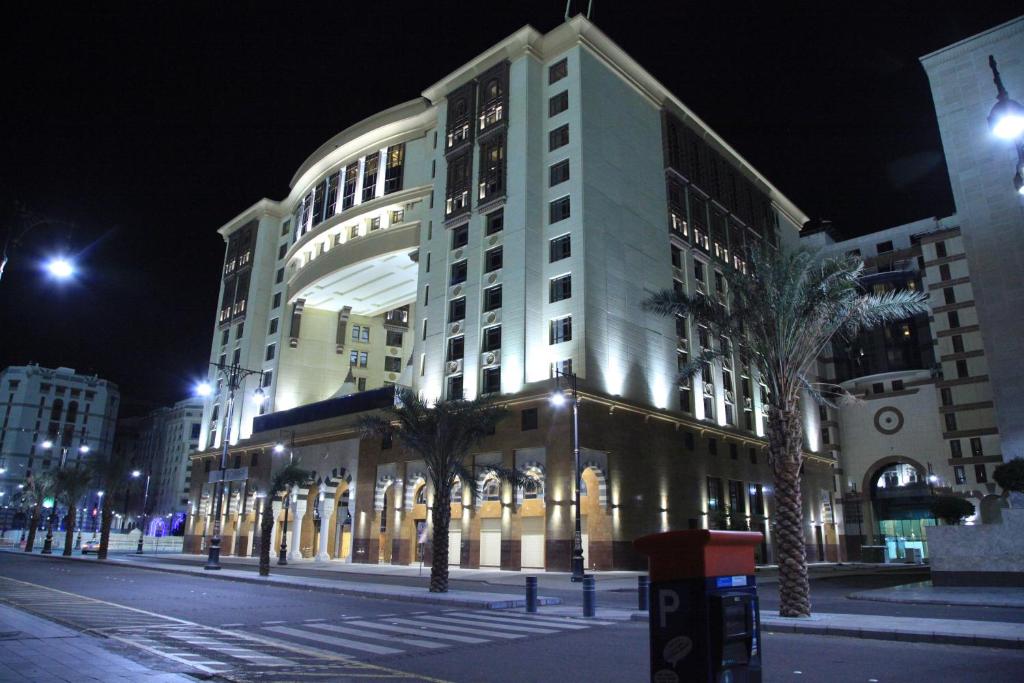Introduction
Technological advancement is reshaping every aspect of modern life, and nowhere is this transformation more evident than urban development. Smart cities, characterized by integrating digital technology, sustainable practices, and data-driven systems, are emerging as a revolutionary force in urban planning. These cities are not just futuristic concepts but functional realities redefining how we live, work, and invest in real estate. Smart cities promise enhanced efficiency, convenience, and environmental responsibility, making them attractive to residents and businesses. However, their influence goes far beyond infrastructure and technology, significantly affecting real estate values.
What Are Smart Cities?
Smart cities leverage technology and data to develop urban living. They integrate digital infrastructure, the Internet of Things (IoT), renewable energy systems, and data analytics to build everything from traffic flow to energy consumption. These cities prioritize sustainability, efficiency, and connectivity to improve the quality of life for their residents. Examples of prominent smart cities in South Korea include Singapore, Dubai, and Songdo.
A smart city’s foundation is its ability to use real-time data to address congestion, pollution, and resource management challenges. By implementing advanced technologies such as AI, 5G connectivity, and automated systems, smart cities aim to create a seamless and sustainable urban experience.

The Usage of Technology in Shaping Real Estate
Technology is a cornerstone of smart cities, influencing everything from building design to urban infrastructure. Smart homes with IoT devices, energy-efficient appliances, and automated systems are becoming essential for these cities. Integrating smart grids and renewable energy sources also contributes to lowering utility costs, which adds to the appeal of real estate in such areas.
Smart city developments often prioritize mixed-use spaces, where residential, commercial, and recreational facilities coexist. This ensures convenience for residents and creates a vibrant urban environment. Smart technologies like virtual tours, digital transaction platforms, and property management apps make buying, selling, and maintaining real estate in these cities easier than ever.
Benefits of Smart Cities for Real Estate Markets
Increased Demand for Property
Smart cities offer unparalleled amenities, making them desirable places to live and work. Integrating technology and sustainability attracts businesses and individuals, driving demand for real estate in these areas.
Enhanced Property Value
Properties in smart cities often command higher prices due to their advanced infrastructure and quality of life. Features like smart security systems, efficient transportation networks, and eco-friendly designs add significant value to real estate investments.
Sustainability and Long-Term Growth
The direction of renewable energy and sustainable practices ensures that smart cities are resilient to future environmental and economic challenges. This stability enhances their attractiveness to investors seeking long-term growth opportunities.
Improved Accessibility and Mobility
Efficient public transportation systems and smart traffic management reduce commuting times, making smart cities more livable. This accessibility boosts the appeal of residential and commercial properties.
Challenges of Investing in Smart City Real Estate
Despite their numerous advantages, investing in smart cities is challenging. High development costs, technological obsolescence, and regulatory hurdles can pose risks. Additionally, the upfront costs of acquiring property in a smart city can be prohibitive for some investors.
Another concern is data privacy and security. Heavy reliance on data collection and analysis in smart cities raises questions about personal information’s safety and ethical use. These issues could affect investor confidence and property values in the long term.

Real Estate Trends in Smart Cities
Rising Popularity of Green Buildings
Eco-friendly buildings that adhere to sustainability standards are in high demand in smart cities. These properties often incorporate solar panels, green roofs, and energy-efficient insulation.
Growth of Co-Living and Co-Working Spaces
The emphasis on community and connectivity in smart cities has led to a surge in co-living and co-working spaces. These shared environments offer affordability and flexibility, particularly for younger demographics.
Mixed-Use Developments
Smart cities prioritize mixed-use developments that combine residential, commercial, and recreational spaces. This trend fosters a sense of community and maximizes the use of urban space.
Integration of PropTech
Property technology (PropTech) is transforming real estate transactions in smart cities. From blockchain for secure transactions to AI for predictive analytics, PropTech enhances market efficiency and transparency.
Case Studies: Real Estate in Prominent Smart Cities
Singapore
Singapore’s status as a global smart city is evident in its advanced infrastructure and focus on sustainability. The city-state’s smart initiatives, such as the Housing Development Board’s (HDB) smart homes, have increased property values.
Dubai
Dubai is a leader in smart city development, with projects like Smart Dubai 2021 emphasizing innovation and connectivity. The city’s futuristic developments, including smart districts like Dubai Silicon Oasis, are attracting international investors.
Songdo, South Korea
Songdo is a model of urban efficiency built from scratch as a smart city. With features like automated waste disposal systems and energy-efficient buildings, Songdo has become a hub for high-value real estate investments.

Impact on Commercial Real Estate
Smart cities are not just transforming residential real estate; they are also redefining commercial property markets. The availability of cutting-edge technology and sustainable infrastructure attracts businesses to establish offices in these cities. Moreover, the focus on connectivity and innovation fosters a thriving entrepreneurial ecosystem, driving demand for office spaces.
Retail spaces in smart cities are also evolving, with a shift toward tech-enabled stores and experiential shopping. Features like augmented reality, automated checkout systems, and data-driven customer insights make these retail spaces highly competitive.
The Role of Government and Policy in Smart City Development
Governments play a critical role in smart cities’ successful development and growth. They can encourage the adoption of smart technologies and sustainable practices through strategic policies, incentives, and regulations.
Many governments are investing in smart city infrastructure, such as high-speed internet, 5G networks, and renewable energy solutions, to make cities more efficient and livable. Moreover, public-private partnerships are increasingly common, with private companies contributing their expertise in technology and innovation to support smart city initiatives.
Additionally, regulations that address data privacy, security, and equitable access to technology are vital for ensuring that smart cities remain inclusive and safe for all residents. Governments must also focus on urban planning that integrates green spaces, affordable housing, and efficient public services to balance technological advancements with the population’s social needs. In this way, government involvement is critical to fostering smart cities’ long-term success and sustainability.
The Future of Smart Cities and Real Estate
As smart city initiatives continue to expand, their influence on real estate will grow exponentially. Emerging technologies such as autonomous vehicles, AI-driven urban planning, and blockchain for property transactions will further enhance the appeal of smart city real estate.
Governments and private developers invest heavily in smart city projects, recognizing their potential to address urban challenges and boost economic growth. This shows an unprecedented opportunity for investors to capitalize on the real estate boom in these technologically advanced cities.

Frequently Asked Questions(FAQs):
What makes a city a “smart city”?
A smart city depends on technology and data to improve urban living. Key features include smart infrastructure, IoT devices, efficient public services, and sustainability initiatives.
How do smart cities affect real estate prices?
Smart cities often lead to higher property values due to their advanced infrastructure, improved quality of life, and focus on sustainability.
Are smart city properties a good investment?
Investing in smart city real estate can offer long-term growth, higher rental yields, and stability. However, investors should consider risks like high costs and potential technological obsolescence.
Which are some leading smart cities globally?
Prominent smart cities include Singapore, Dubai, Songdo (South Korea), Amsterdam, and Barcelona.
What are the challenges of living in a smart city?
Challenges include high living costs, data privacy concerns, and potential technological failures.
How can I invest in smart city real estate?
Investors can explore opportunities in smart residential and commercial properties, PropTech startups, or real estate investment trusts (REITs) focused on smart city developments.
How do smart cities contribute to sustainability?
Smart cities integrate renewable energy sources, smart grids, energy-efficient buildings, and sustainable transportation options to reduce carbon footprints. These eco-friendly practices help cities become more resilient to climate change, making them attractive for residents and investors seeking green, sustainable living.
Can smart cities help solve urbanization challenges?
Smart cities address key urbanization challenges such as congestion, pollution, and resource management. Through data-driven solutions, smart cities optimize infrastructure and services, improving overall quality of life and ensuring that urban spaces can accommodate growing populations efficiently and sustainably.












